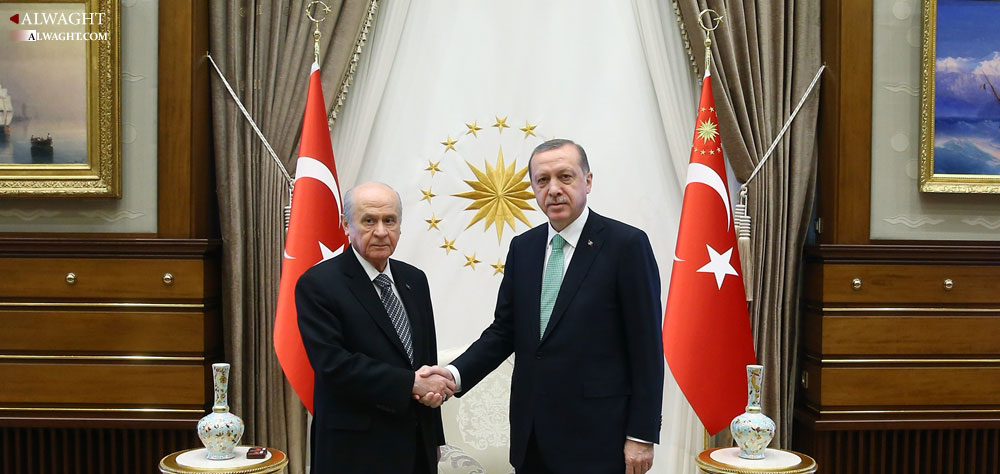Alwaght- At the time being, the most important political issue that catches attention in the Turkish politics is the plan for change of the country’s constitution. The reports in past few days suggested that jurists from the two key Turkish parties of the Justice and Development Party (AKP) and the National Movement Party (MHP) have reached a final agreement on writing the draft bill of the amendment of the national constitution that would be presented it to the parliament for review.
Meanwhile, what so widely called public attention is the bid to change Turkey’s political system from parliamentary to presidential. Despite the fact that a majority of poll results suggest possibility of success of President Recep Tayyip Erdogan and his party in overhauling the Turkish constitution, it is also possible that the bill fail to draw the needed vote in the parliament.
As part of the effort for amending the constitution the AKP-backed proposal was presented to the parliament for discussion after agreeing upon it with the MHP. The proposal comes in 20 articles, proposing transfer of a major part of the prime minister's powers to the president.
It is noteworthy that the presidential post in Turkey since 1923 has been a ceremonial post, and essentially has served as symbol of the national unity of Turkey. Therefore, transition of the prime minister’s leverages to the president comes with the specific intention of solidifying Erdogan’s political clout and increasing his leverages in the country.
After expiration of three terms in office and because the internal rules of the AKP do not allow fourth term in office for a prime minister from the party, Recep Tayyip Erdogan after three terms as prime minister set his eyes on the presidential post to get the chance and time for longer stay in power and the politics. He managed to become twelfth president of Turkey through securing over 50 percent of the direct votes in the presidential election held on August 10, 2014.
Following his win in the election, Erdogan told his supporters that he will transform the presidential post into a significant post and will not allow it to be considered as a ceremonial position. As part of moves to fulfil his pledges– and particularly prompted by the failed coup attempt on June 15 this year– he resumed struggles to reform constitution and change the country’s political system to presidential. To this end, the AKP in line with the MHP, led by Devlet Bahceli, has concluded the initial accords for the constitutional amendment to come into force. The agreement between the two major parties played itself out in the December 11 draft bill delivered to the parliament.
Approving the draft bill to make it into a law requires support by 330 out of 550 lawmakers. What is certain is that 350 members of the parliament who are from AKP and MHP, two architects of the bill, will back it. This means that at least the bill will secure approval of the parliament and will be put to public referendum.
But the bill, if not put to the referendum, will need two thirds of the lawmakers' votes for final passing, namely 367 consensual votes out of a total of 550, something very unlikely to take place. With a consideration of the 316 total votes of the AKP members and the 39 votes of the members of the MHP, the bill will garner a total of 355 backing votes. This means that it will come short of 12 votes from other parties for final approval. Having in mind that other parties expressed opposition to the motion in the parliament, it is very likely the bill will not touch the needed threshold of two thirds for final passing.
Consequently, it will eye public referendum. But it can be noted that the main difficulty stands ahead; in the referendum. In this stage, the People’s Democratic Party (HDP) and the Republican People’s Party (CHP) will go to great lengths to set up hurdles ahead of the bill in referendum. Additionally, it is likely that many of supporters of the MHP decline to stay loyal to their party’s policy and alliance with AKP and could vote against the constitution overhaul bill.
The Turkish Deputy PM Nurettin Canikli in fresh remarks said that likely in March 2017 and after positive public vote to the constitutional reforms, the country will see new constitution being enforced. Meanwhile, the very strong possibility that gains ground about the constitutional reform is abolition of the prime minister Post and transition of its powers to the presidential post.



























